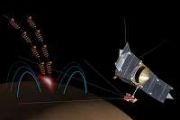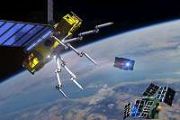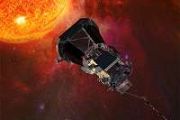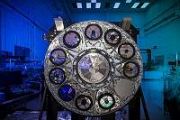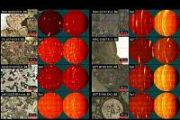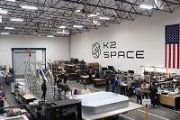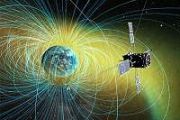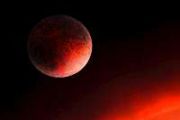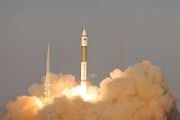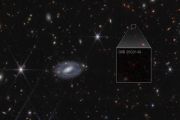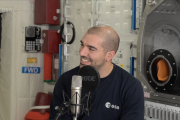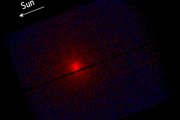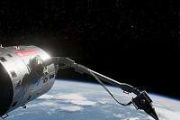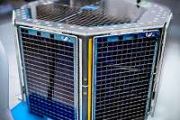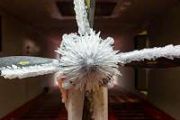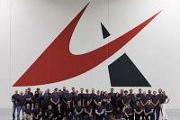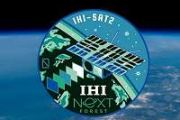
Copernical Team
ESA Astronauts Embark on Lunar Geology Training in Norwegian Wilderness
 In the hush of a Norwegian fjord, under the spectral glow of a waning crescent Moon, ESA astronauts Alexander Gerst and Samantha Cristoforetti have started their journey into lunar geology. The astronauts have been meticulously prepared for their first field expedition, equipped with digitally enhanced toolkits and bracing for the rigors of ESA's PANGAEA course.
Adorned in state-of-the-art
In the hush of a Norwegian fjord, under the spectral glow of a waning crescent Moon, ESA astronauts Alexander Gerst and Samantha Cristoforetti have started their journey into lunar geology. The astronauts have been meticulously prepared for their first field expedition, equipped with digitally enhanced toolkits and bracing for the rigors of ESA's PANGAEA course.
Adorned in state-of-the-art Euclid's large halo around indefinitely small point
 If you think it's only possible to be held in orbit around a physical 'thing' with a large mass - a planet or a star, say - you'd be wrong. It is in fact possible to orbit around an invisible point, an oasis of forces, infinitesimal in size. ESA's Euclid mission was launched on 1 July 2023 to uncover the secrets of the dark universe. Its destination? Like many astronomy missions before it, Lagra
If you think it's only possible to be held in orbit around a physical 'thing' with a large mass - a planet or a star, say - you'd be wrong. It is in fact possible to orbit around an invisible point, an oasis of forces, infinitesimal in size. ESA's Euclid mission was launched on 1 July 2023 to uncover the secrets of the dark universe. Its destination? Like many astronomy missions before it, Lagra Rocket Lab to boost Synspective's satellite constellation with more launches
 The US-based small satellite launch service provider, Rocket Lab USA, Inc. (Nasdaq: RKLB), has recently signed a deal with Japan's Synspective, an Earth imaging company, for two dedicated Electron launch missions. With this development, Synspective's contracted missions with Rocket Lab have now been extended to a total of six, reflecting the strong and evolving collaboration between the two ente
The US-based small satellite launch service provider, Rocket Lab USA, Inc. (Nasdaq: RKLB), has recently signed a deal with Japan's Synspective, an Earth imaging company, for two dedicated Electron launch missions. With this development, Synspective's contracted missions with Rocket Lab have now been extended to a total of six, reflecting the strong and evolving collaboration between the two ente CASIC plans new satellite network by 2030
 China Aerospace Science and Industry Corporation (CASIC), a leading Chinese space contractor has revealed plans to create an expansive remote-sensing satellite network by the end of this decade. The announcement, made on Thursday, is an impressive testament to the ongoing advancements in China's space exploration and surveillance capabilities.
Managed by CASIC Space Engineering Development
China Aerospace Science and Industry Corporation (CASIC), a leading Chinese space contractor has revealed plans to create an expansive remote-sensing satellite network by the end of this decade. The announcement, made on Thursday, is an impressive testament to the ongoing advancements in China's space exploration and surveillance capabilities.
Managed by CASIC Space Engineering Development Uniting Europe: DLR Spearheads Responsive Satellite Deployment Network
 The rapidly expanding realm of information technology is ever-dependent on unobstructed access to space-based data and communication networks, bringing the need for technical mechanisms that can safeguard, repair, reinforce, or develop essential space infrastructures to the forefront.
Ensuring new satellites can be placed and activated in orbit within a matter of hours or days is of prime
The rapidly expanding realm of information technology is ever-dependent on unobstructed access to space-based data and communication networks, bringing the need for technical mechanisms that can safeguard, repair, reinforce, or develop essential space infrastructures to the forefront.
Ensuring new satellites can be placed and activated in orbit within a matter of hours or days is of prime Webb Telescope catches glimpse of possible first-ever 'dark stars'
 Austin TX (SPX) Jul 14, 2023
Stars beam brightly out of the darkness of space thanks to fusion, atoms melding together and releasing energy. But what if there's another way to power a star?
A team of three astrophysicists - Katherine Freese at The University of Texas at Austin, in collaboration with Cosmin Ilie and Jillian Paulin '23 at Colgate University - analyzed images from the James
Austin TX (SPX) Jul 14, 2023
Stars beam brightly out of the darkness of space thanks to fusion, atoms melding together and releasing energy. But what if there's another way to power a star?
A team of three astrophysicists - Katherine Freese at The University of Texas at Austin, in collaboration with Cosmin Ilie and Jillian Paulin '23 at Colgate University - analyzed images from the James China's methane-fueled rocket achieves global first with successful orbital insertion
 The first successful orbital mission of a methane-fueled rocket has been accomplished by China, a significant breakthrough in the utilization of low-cost and environmentally friendly liquid propellants for carrier rockets. The rocket, known as ZQ 2 or Rosefinch 2, launched from the Jiuquan Satellite Launch Center located in China's northwestern Gobi Desert on Wednesday morning.
The Beijing
The first successful orbital mission of a methane-fueled rocket has been accomplished by China, a significant breakthrough in the utilization of low-cost and environmentally friendly liquid propellants for carrier rockets. The rocket, known as ZQ 2 or Rosefinch 2, launched from the Jiuquan Satellite Launch Center located in China's northwestern Gobi Desert on Wednesday morning.
The Beijing Rocket Lab readies launch of seven satellites from New Zealand
 California-based Rocket Lab plans to launch seven miniature satellites that will gather data on Earth's atmosphere to improve weather forecasting, replace a decommissioned technology spacecraft and send twin navigation satellites into space.
This mission, which Rocket Lab calls Baby Come Back, will involve a launch on an Electron rocket as early as Friday from New Zealand's Mahia Peninsula
California-based Rocket Lab plans to launch seven miniature satellites that will gather data on Earth's atmosphere to improve weather forecasting, replace a decommissioned technology spacecraft and send twin navigation satellites into space.
This mission, which Rocket Lab calls Baby Come Back, will involve a launch on an Electron rocket as early as Friday from New Zealand's Mahia Peninsula Japan rocket engine explodes during test: official
 A Japanese rocket engine exploded during a test on Friday, an official said, in the latest blow to the country's space agency.
The Epsilon S - an improved version of the Epsilon rocket that failed to launch in October - blew up "roughly 50 seconds after ignition", science and technology ministry official Naoya Takegami told AFP.
The testing site in the northern prefecture of Akita was
A Japanese rocket engine exploded during a test on Friday, an official said, in the latest blow to the country's space agency.
The Epsilon S - an improved version of the Epsilon rocket that failed to launch in October - blew up "roughly 50 seconds after ignition", science and technology ministry official Naoya Takegami told AFP.
The testing site in the northern prefecture of Akita was Astronauts' new rides for Artemis missions arrive at Kennedy Space Center

While the next humans to fly to the moon will rely on the Orion spacecraft for the nearly half-million-mile trip next year on the Artemis II mission, the final 9 miles to the launch pad will come while riding in one of three new astronaut transports now parked at Kennedy Space Center.
Three curvy electric vehicles officially referred to as CTVs, as in crew transportation vehicles, were built by California-based Canoo Technologies and arrived to KSC on Tuesday. They will be used during training leading up to the Artemis II flight slated for no earlier than November 2024.
That mission will fly the crew of three NASA astronauts and one Canadian Space Agency astronaut on a 10-day mission around the moon, the first time humans will fly in the Orion capsule launching atop the powerful Space Launch System rocket. It will pave the way for Artemis III no earlier than 2025 that seeks to return humans including the first woman to the lunar surface for the first time since 1972.
The new zero-emission CTVs are equipped to bring the four crew suited up in their spacesuits along with support personnel including a spacesuit technician on the ride from the Neil A.



